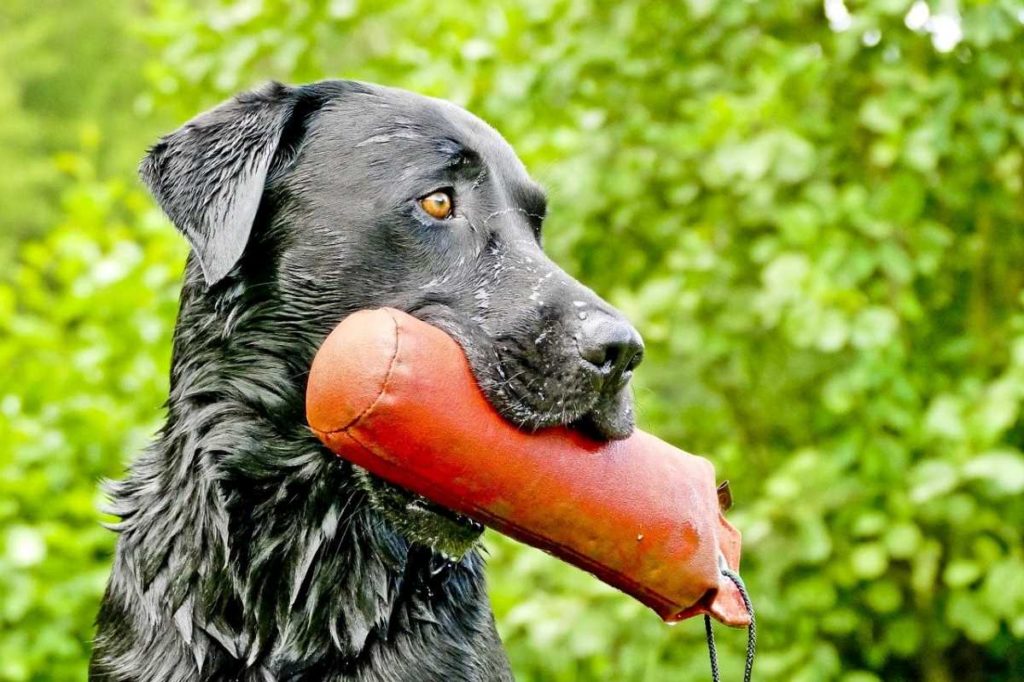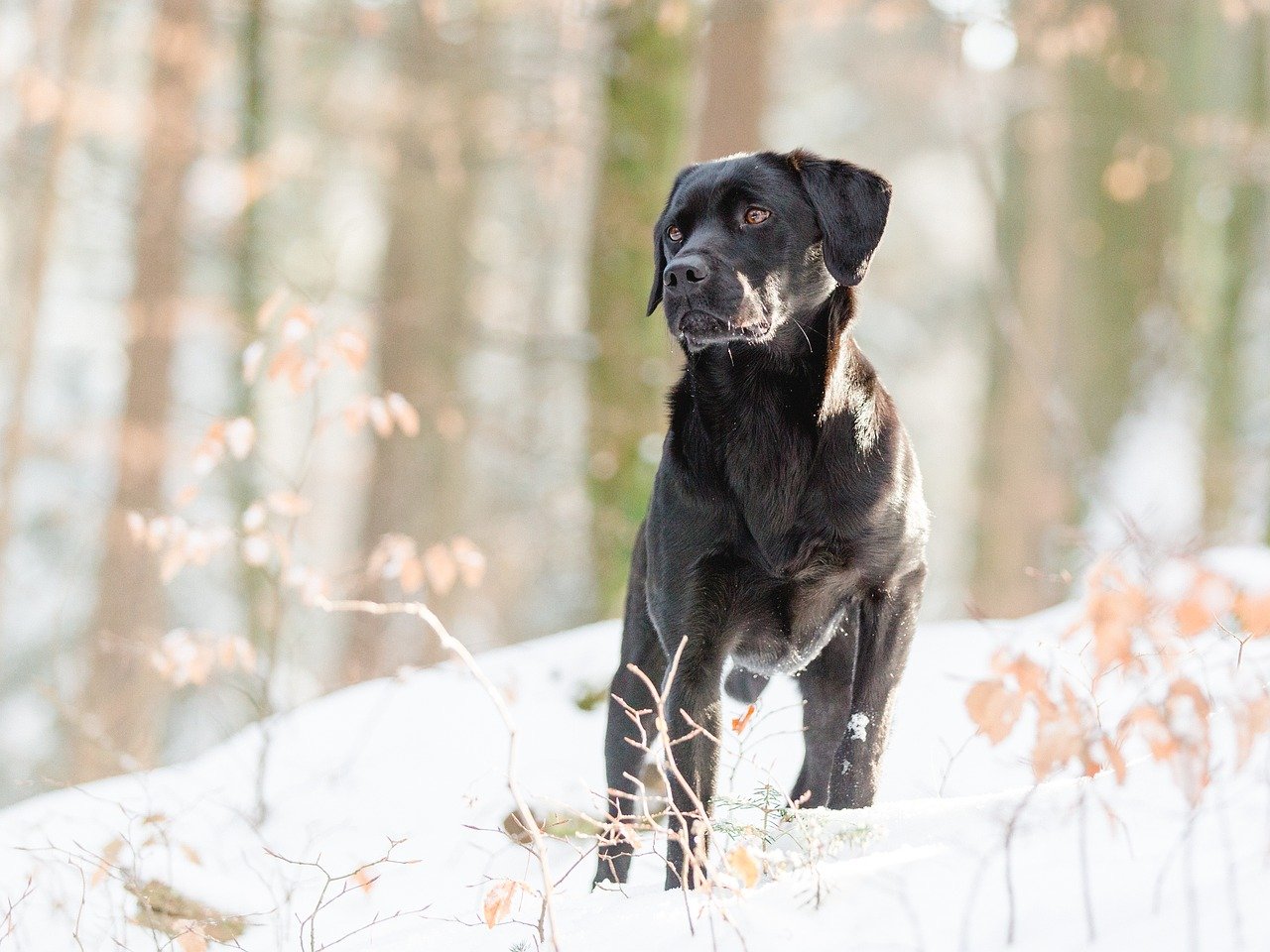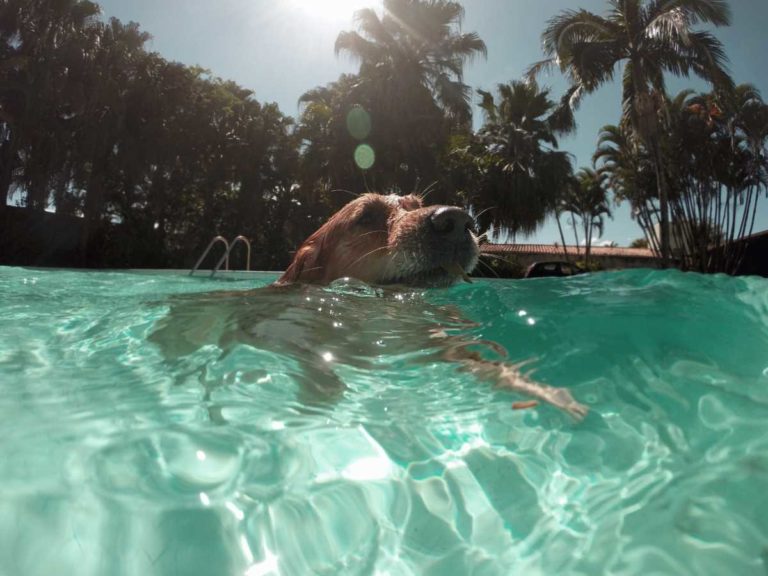Though life with a Labrador can bring a lot of laughter, cuddles, and frequent vacuuming, Lab owners can also face some potentially difficult obstacles.
While Labs are famous for their intelligence, friendliness, and easygoing personalities, there are some serious issues that Labrador life can also bring, and it’s important to be aware of them if you’re entering the world of Lab ownership for the first time.
We’re going to explain the four biggest difficulties Lab owners face and give you helpful strategies to handle them in the best way possible.
Health Issues
Health issues can be a significant obstacle for all pet owners, especially those who love and care for Labrador Retrievers. Many dogs can develop medical problems, even when owners do everything they can to prevent them.
(This article may contain affiliate links. As an Amazon Associate I earn from qualifying purchases. Learn more)
Health problems in a dog can create considerable financial costs for owners. They can also cause emotional stress and frustration as you watch your dog suffer from chronic or severe health issues that can’t be easily solved.
It’s never easy to see anyone you love in pain or dealing with sickness, and that’s especially true for your canine companion. One of the challenges of owning a Lab is that Labs have a gentle, playful temperament which can often mask health issues. You might be unaware of any health issues because your Lab is demonstrating typical happy, playful, and active dog behavior.
It’s one of the reasons why staying on a regular schedule of wellness visits with your veterinarian is so important, because you can’t wait for your dog to start acting differently to let you know they might have any health issues.
While sometimes dogs will act strangely and that behavior may help tip you off that your dog might be ill or suffering from a medical problem, not all Labs will demonstrate symptoms of illness when they have something wrong. A happy and playful dog can have undiagnosed medical issues that wouldn’t necessarily be detected without proactive care and testing from your vet.
When one of the Labs of Labrador Wise was diagnosed with heartworm disease right after he was rescued, you would never have known from meeting him that he was so ill with such a serious medical problem.
He was playful, exuberant, and energetic, bordering on hyperactive. There were zero outside physical symptoms of his disease, and he didn’t demonstrate any of the known symptoms, which we learned from our vet is often seen with heartworm.
Labrador Retrievers as a breed are known to have some occasional health problems including joint issues, eye problems, exercise-induced collapse, obesity, allergies, and thyroid disorder.
Not all Labs will suffer from health issues, and you may be fortunate to have an extremely healthy dog. But as your Labrador gets older, their health may start to be impacted by issues even if none were present at the beginning.

And for new potential Lab puppy parents, how can you start out with the best possible chance of having a healthy dog from puppyhood?
Choosing your puppy wisely by investigating the health history of your dog’s parents is a critical step in the process of selecting a Lab puppy.
While the adorableness of Lab puppies can be overwhelming, don’t get caught up in it and disregard the importance of investigating both your potential Lab breeder and the health and temperament history of the exact dog pair you’re looking to get a puppy from.
(See More: How to Find the Best Labrador Breeder)
While no one (including the very best breeders) can guarantee that your pup won’t have health issues in the future, doing your research on health history and asking the right questions to a potential breeder can go a long way to eliminate those choices that might not result in a happy outcome for anyone.
In choosing a rescue Labrador, we also recommend you get as much health history from the adoption service or shelter you may be working with, review vet records carefully, and schedule an immediate wellness checkup with your veterinarian as soon as you bring your lucky rescue Lab home.
Dealing with High Energy Demands
Another big difficulty that Labrador owners face is underestimating the demands of having a very high-energy dog.
Though Labs are the most popular dog breed (and have been for the last 30 years), they have significantly more energy than many other breeds. The energy level of your particular Labrador can also vary tremendously based on their age, temperament, and daily environment.
Labs are one of the most intelligent breeds of dogs, but this also means that they won’t be easily settled with basic toys or low-demand games. They will have mental and physical energy demands that will need to be met in order for it to be easier for you to manage them in your home environment.
Many new Lab owners are caught off-guard by how much energy their Labrador has, and how much time and effort are required to satisfy the physical exercise demands of their Lab.
This is especially true for dog owners living in smaller spaces such as apartments or condos that may not have as much access to outdoor exercise space for their dog. It can be a bigger time commitment for those owners to set aside a dedicated routine and location to exercise their Lab and get all of that happy and playful Lab energy out.
(Wondering if what you’re seeing is more than just typical Lab energy? See “Why Is My Labrador So Hyper?” for more on what’s causing your Lab’s extreme energy)
Make sure you commit to walk or exercise your Lab in a secure, preferably outdoor space multiple times a day for at least 30 minutes. Things like weather and climate will play a big part in how successfully you’re able to exercise your dog and how much energy they’ll expend outside.

One positive trait of Labradors Retrievers is that they tend to be outdoor-loving dogs who will be thrilled when it’s time for a walk or a trip to the park. They typically have endless amounts of energy for playing fetch or playing in the water and are hardy dogs that are up for outdoor adventure in many climates.
We’ve had Labradors outdoors in the high Rocky Mountains, in tropical climates, at the beach, in deep snow, and in rivers, lakes, and the desert. They have accepted each adventure with exuberance, a wagging tail, and excitement for something new.
To help handle the extreme demands of a high-energy dog, you may also consider putting your Labrador in a doggie daycare or another type of play setting.
Dog parks might also work for you, but be sure you’re taking the right precautions first.
(Read More: Dog Parks – 4 Pros & Cons to Know)
Shedding (Like Crazy)
Labradors are known to be excessive shedders, which is common frustration you’ll hear mentioned in the Labrador community. Hair everywhere!
One of the biggest obstacles in owning a Labrador Retriever is keeping up with the extreme shedding problem that may set up residence in your home.
Labs are not a low-shedding breed, nor are they hypoallergenic dogs.
Because this is such a big concern among Lab owners, we’ve covered this topic in-depth in an entire article: How to Deal with Lab Shedding. You’ll find strategies there to reduce the shedding problem in your home and make it more manageable, starting right away.

If you have allergies or need to consider a breed of dog that sheds less due to your home environment (or your own sanity), check out our guides to dog breeds that may be more likely to shed less, such as the Labradoodle and the Goldendoodle.
If you choose to have multiple Labradors in your life, we completely support your decision! Be aware the shedding may take on a mind of its own.
Saying Goodbye
The biggest difficulty of all when it comes to life with your Labrador is the moment when you realize it might be time to say goodbye to your beloved friend. It’s a horrible thought most Lab owners never want to consider, but it’s a tragically inevitable part of Labrador life.
Whether because of health problems that can at some point no longer be treated, or just your Lab reaching the end of a very long and happy life, saying goodbye to your beloved Labrador companion is the biggest challenge that Lab owners will ever face.
Your veterinarian will be your biggest resource and support when it comes time to make those terrible and heart-wrenching end-of-life decisions.
We’ve been a part of many social media groups that provide support, kind words, and understanding for Labrador owners whose Labs have crossed over to the “Rainbow Bridge.” It’s hard to go on with daily life without your favorite buddy by your side, and sometimes finding support from others who’ve experienced this type of grief is the best way to cope with adjusting to a relationship that’s forever changed.
In addition to finding support through a community of Labrador owners who’ve experienced losing a beloved dog, you can also choose to memorialize your pet through art or keepsake items that can commemorate the significance of your Lab’s impact on your life.
There are amazingly talented artists who create portraits, metal art, and paintings in memorial of a much-loved pet. Keeping your pet’s presence in your life alive through memories can help you face the ultimate challenge of saying goodbye.
Summary: The 4 Biggest Difficulties Lab Owners Face
While there are dozens of compelling reasons to get a Labrador Retriever, there are also a few significant possible obstacles and difficulties that Lab owners need to be aware of before taking on the responsibility and commitment of Labrador life.
Lab owners may face their dog’s health issues, intense energy, excessive shedding, and their own personal heartache of one day saying goodbye to a beloved and adored dog. In spite of those difficulties, we believe that all the good that comes from sharing your life with a loving and loyal Labrador companion will outweigh any perceived difficulties that may ever come your way.







